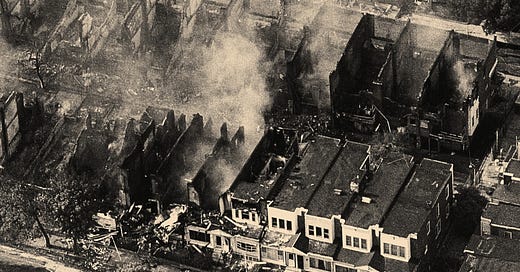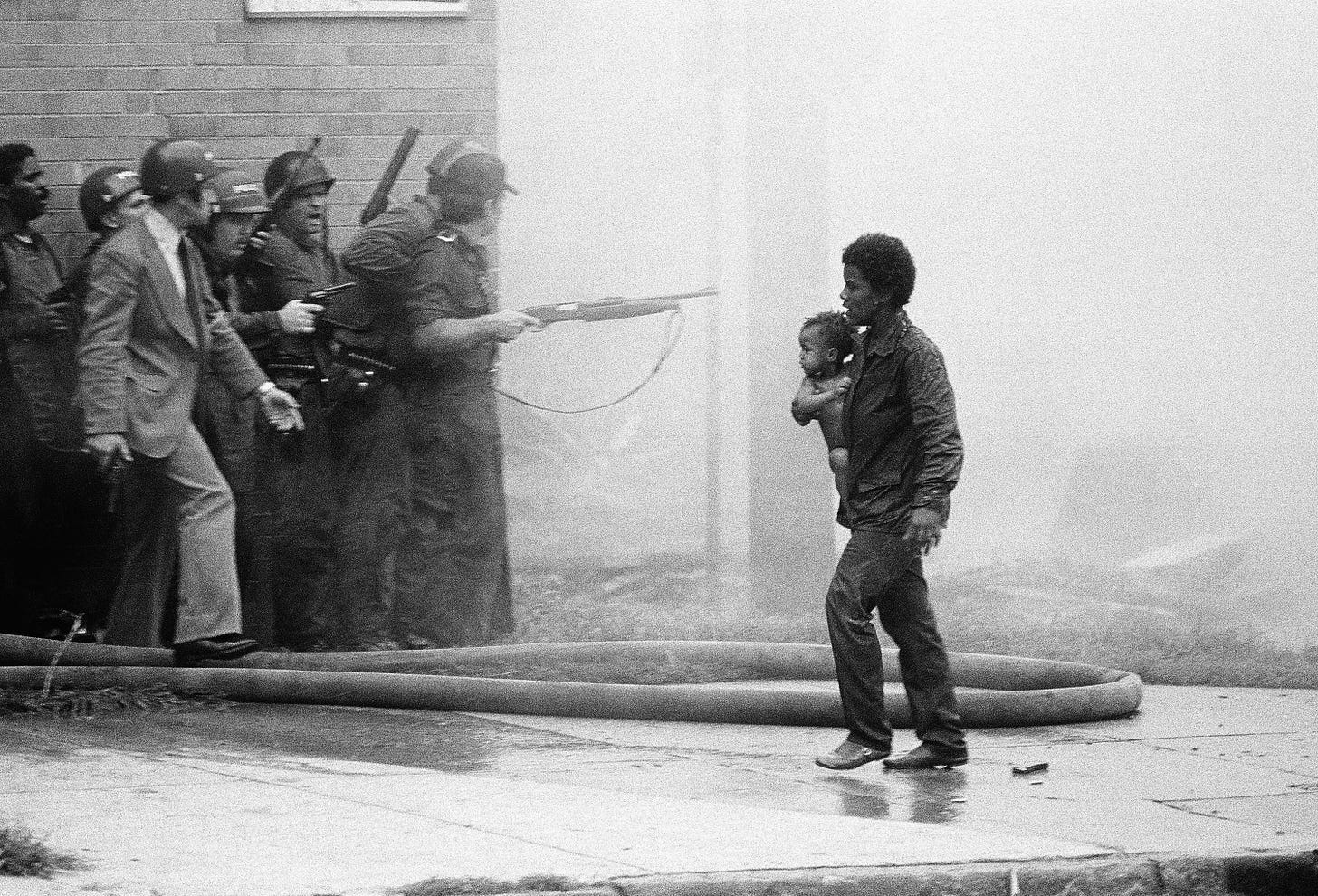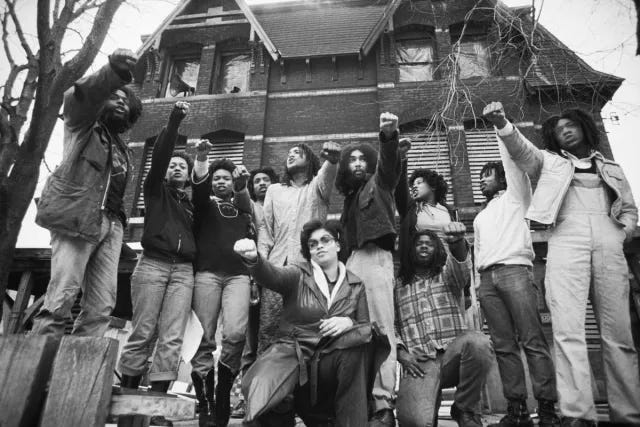On May 13, 1985, a devastating event took place in the Cobbs Creek neighborhood of Philadelphia, Pennsylvania, The city’s police department bombed the residence of MOVE, an organization rooted in Black revolutionary ideals, resulting in the loss of 11 lives and the destruction of an entire neighborhood.
Founded in 1972 by John Africa, MOVE was a communal organization blending anarcho-primitivist philosophies with revolutionary ideals reminiscent of the Black Panthers. The group advocated for a return to a simpler way of life, rejecting industrialization and championing animal rights. Their beliefs were deeply rooted in equality for all living beings, and members symbolically adopted the surname "Africa" to honor their ancestral roots.
MOVE’s commitment to their principles often put them at odds with authorities. In the late 1970s, tensions reached a boiling point when a standoff with Philadelphia police led to the death of an officer, a situation that MOVE members contended they were not responsible for. Consequently, several members were charged and sentenced for his death in a move that many criticized as unjust
By 1981, MOVE had settled into a home on Osage Avenue in West Philadelphia. However, tensions with their neighbors and law enforcement continued. By 1985, the police sought to arrest several MOVE members on charges ranging from parole violations to making threats. This set the stage for the events of May 13.
On that day, an operation involving over 500 police officers was launched to apprehend four MOVE members. Initial tactics included shutting off utilities to the house, but when these efforts failed, authorities resorted to a drastic measure. Under city manager Leo Brooks and Commissioner Gregore J. Sambor's orders, a device made from Tovex and FBI-supplied C-4 was dropped onto the MOVE residence from a helicopter. The resulting explosion led to a catastrophic fire that engulfed the house and spread to 61 neighboring homes, leaving 250 people homeless.
Tragically of those inside the MOVE house, only two survived a young boy, Birdie Africa, and Ramona Africa. The fire claimed the lives of 11 people, including five children.
The aftermath of the bombing was a mix of tragedy and legal and political drama. The Philadelphia Special Investigation Commission, eventually formed to investigate the incident, resulted in a public apology from Mayor W. Wilson Goode but saw no criminal charges brought against city officials. However, Ramona Africa was incarcerated for seven years on charges related to the incident.
Lawsuits ensued, with a significant outcome in 2005 when a jury awarded $12.83 million to survivors and relatives of MOVE victims, holding the city accountable for the tragedy. In a step towards healing, in 2020, the Philadelphia City Council took a significant step by formally apologizing for the MOVE bombing, marking May 13 as a day of observation and recommitment.
















Share this post